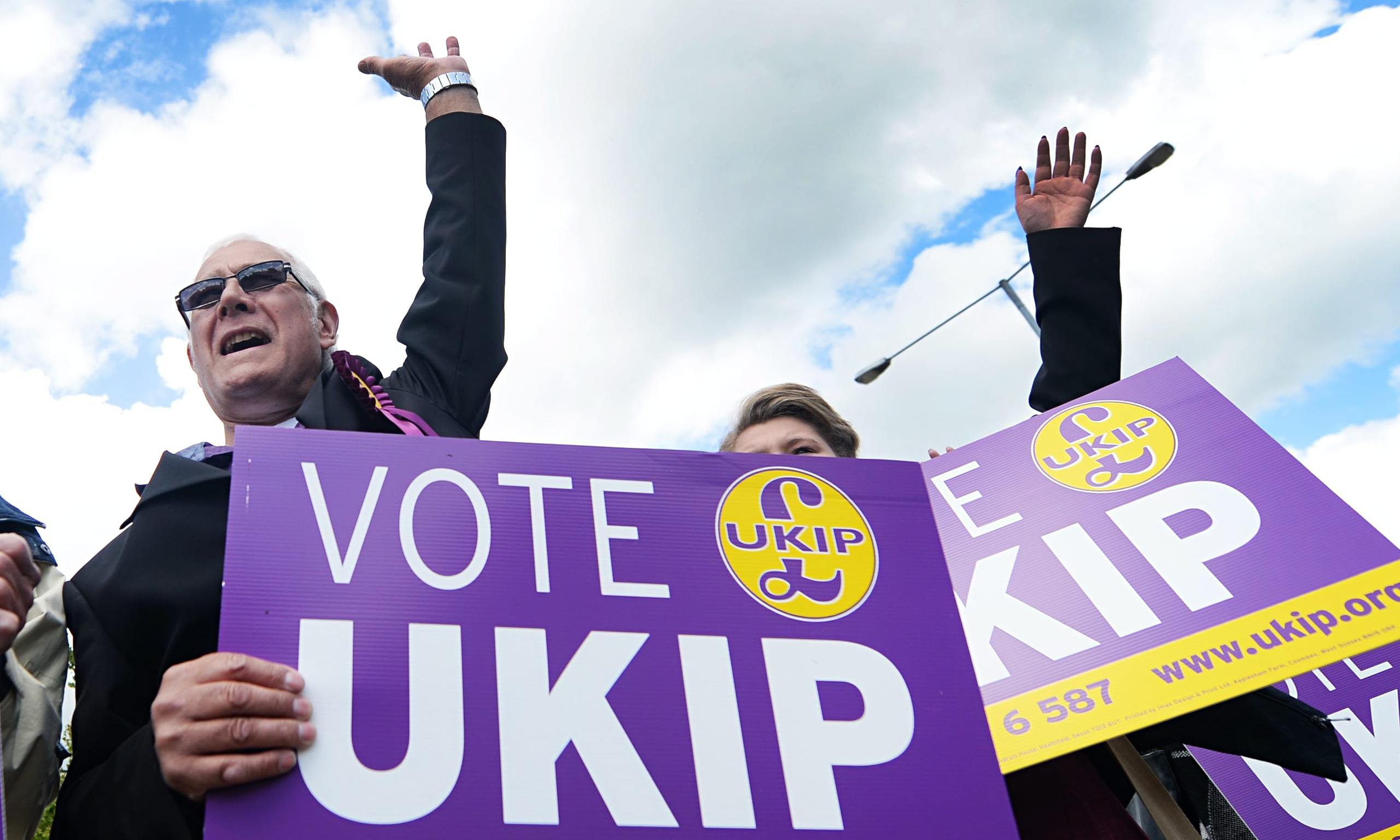Can we please stop talking about a Tory-Ukip pact?
written for The Telegraph, 29 May 2014

These people aren’t in a mood to make a pact (Photo credit: Andy Rain/EP)
Perhaps, next year, the comments below these blogs will be full of diatribes against LibLabConKip. Such, surely, is the natural conclusion of any pact between the Conservatives and Ukip, which my colleague Daniel Hannan MEP has called for.
At the end of this tumultuous week, however, it’s clearer than ever that it won’t happen. Ukip remains a party powered by rage, a pulsating purple vein on the temple of the body politic. As Lord Ashcroft’s latest poll showed, 62 per cent of people who voted Ukip did so “as a general protest that I am unhappy with all established political parties at the moment”. That’s an understatement. Speak to any senior figure in Ukip and you’ll flinch at the venom directed at the modern Conservative party.Dan Hannan, Douglas Carswell, Peter Bone and Jacob Rees-Mogg may call for “accommodation”, but the moment Farage does a deal with the Tories he torpedoes his real power over the Tory leadership: the power to scare them silly. And he knows it.
While Dan remains the most eloquent voice on the Eurosceptic Right – like many of his admirers, I’d love to see his talents employed at Westminster – there’s a fundamental dissonance in the way he talks about Ukip’s appeal. He describes the rise of Ukip as a “splitting of the right-of-centre vote”, and calls for reconciliation. But central to his proposal is the vision of Ukip as a serious challenger to the Labour party in the North. As with Toby Young’s Unite The Right campaign, Dan suggests that Ukip stand down candidates in Tory targets in the South, while Tories step aside in Northern Labour targets.
Let’s examine this proposal. It’s true that Ukip offers much to appeal to poorer parts of the country – its trenchant obstruction of cheap immigrant labour, for example. But at some point, when Ukip’s fabled policy committee actually tells us how it proposes to govern, the party is going to have to decide whether it is a pro-business or a protectionist party. I’ve never been a fan of the minimum wage, for example, but I suspect Ukip will find it difficult to fight an election in the North as the only party refusing to raise it significantly.
If there’s a Northern precedent, it’s the by-election in Wythenshawe and Sale East this February. In January, the most prominent supporters of a Ukip-Tory pact were telling me that Ukip would win the seat. By the week beforehand, expectations were being managed down: Farage told the BBC that 20 per cent of the vote would be a good result for Ukip. In they end, they scraped 18 per cent. In the European election, Ukip took 27.5 per cent of the vote in the North West region in which Wythenshawe and Sale East lies. But when it came to sending a kipper to Westminster, Wythenshawe demurred.
And it looks like this pattern – high Ukip showing at a European election, damp squib in the general election – will continue. Lord Ashcroft’s poll shows that only 51 per cent of people who voted Ukip in these European elections intend to do so in the parliamentary elections. Dan argues that this is still enough to cripple the Right – but only if turnout remains at a paltry 33.68 per cent. Ukip sympathisers may have the highest turnout in European elections of any group, but in 2015 you can expect Labour to get their core vote out come hell or high water.
So, given that their latest list of target seats includes a significant batch in Essex, what possible motive could Ukip have to step aside in the South in return for just a tiny bit of a head start in the North?
There is little to gain for Ukip from a pact with the Tories. But it would be just as poor a deal for the Tories. As the Lib Dems become an endangered species, their 23 per cent of the 2010 vote is up for grabs. Association with Ukip and the bigots in its core membership won’t help the Tories pick up those votes.
In his blog post on the subject Douglas Carswell continues the standard Tory defence of Ukip: homing in on “the occasional crankiness of Ukip candidates” merely underlines how clone-like other parties’ candidates are. But when he talks of “Ukip crankiness”, he’s talking about men like Andre Lampitt, who doesn’t see the Jewish Ed Miliband as a “real Brit”. And as someone who spends far too much time in Westminster for my own good, if getting through a TV interview without “accidentally” using the N-word makes me a clone, then I’m proud to be one.




